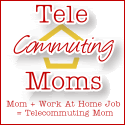Cleanup and Planning: Year-End Checklist for The Self Employed
copyright © 2003, by Karyn Greenstreet. All rights reserved.
As the end of the year approaches, it’s important to both close-out the old year properly as well as plan for the new year. I recommend you do this process throughout the year so that there isn’t a last-minute rush to complete your year-end closing tasks. Here are some idea that you might want to add to your checklist:
Cleanup and Closing Tasks
*Enter all revenue and expenses into your recordkeeping system.
*Send final invoices for current year.
*Reconcile your bank account records with bank statements.
*Estimate your last tax payment for the current year (many self-employed people make quarterly estimated tax payments…the final payment is usually due on January 15)
*Mail holiday cards and gifts to clients/customers
*Make holiday offers to clients/customers
*Clean out old files/emails
*Create year-end accounting reports and compare to goals for year
*Tally business-related mileage for year
*Tally expenses by vendor and prepare 1099’s if needed
*Contact your accountant and discuss year-end tax planning
Planning Tasks for the New Year
*Write a list of goals
*Write a list of tasks that need to be accomplished in order to make those goals
*Write a list of projects you’d like to start or complete
*Create an updated marketing plan
*Create an updated budget
*List the topics you’d like to study, the classes you’d like to take, or the books you’d like to read, to keep you up-to-date with your industry and business skills
*Schedule upcoming classes you’ll teach and distribute that Calendar of Events to clients and staff
Cleanup and planning tasks don’t just happen in December and January. If you review these tasks quarterly, they won’t sneak up on you at the end of the year.
------------------------------------------------------------------------------
Karyn Greenstreet is a Self-Employment expert and small business coach. She shares tips, techniques and strategies with self-employed people to boost clarity and focus, create sustainable motivation, and increase sales and profits. Visit her website at www.PassionForBusiness.com







